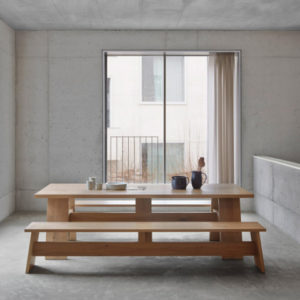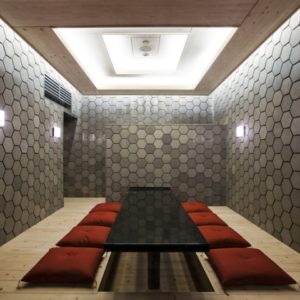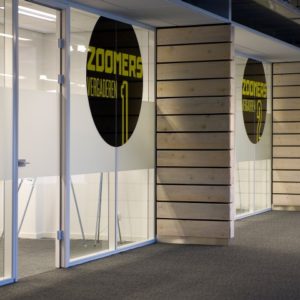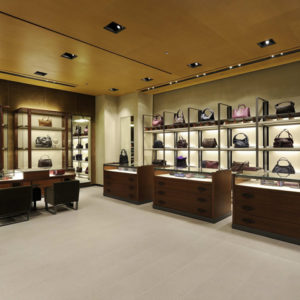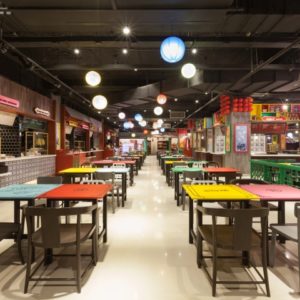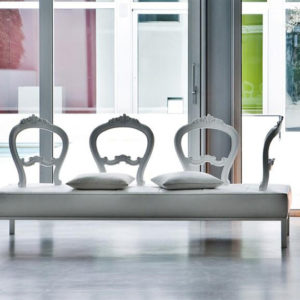
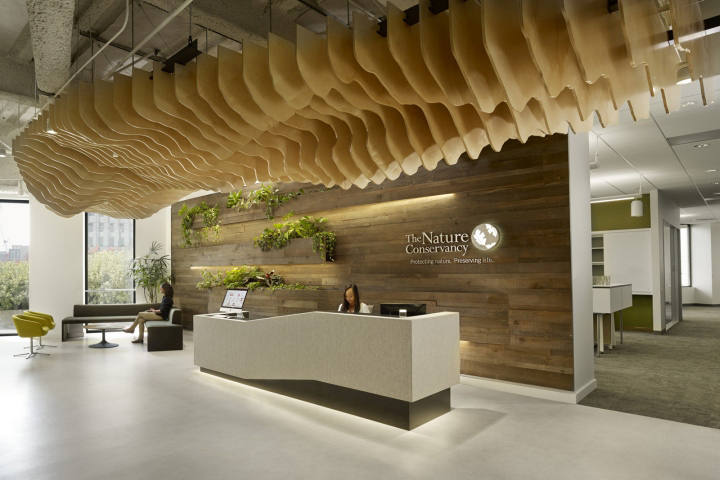

MKThink recently completed a new office space for The Nature Conservancy (TNC), the world’s largest conservation organization. Located in San Francisco’s Financial District, TNC was looking to revamp a dated, cramped, and underutilized office environment with an eye toward enhancing their company culture and physically representing their mission of conservation and appreciation for nature.
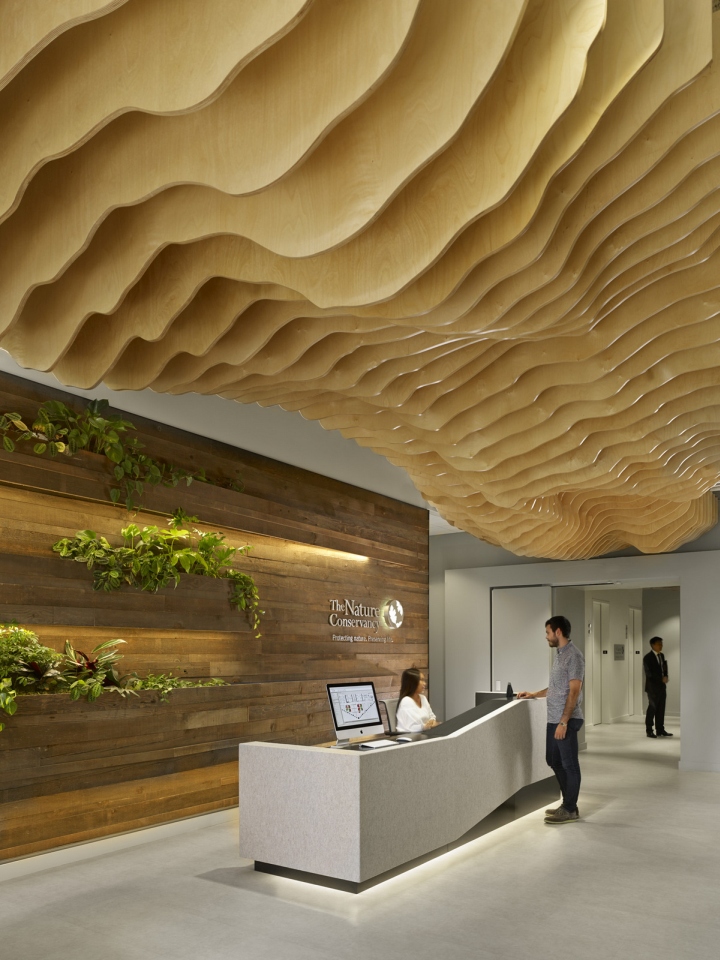
Previously spread across one and a half floors, MKThink began the project by undertaking a utilization and occupancy analysis to better understand how the space functioned on a daily basis. Through in-person ethnographic observation, and by studying aggregate data from unique carded door entries, our team ascertained that even at peak times, only 80% of the offices’ 107 desk spaces were in use. The widespread incidence of telecommuting and the closed-off nature of private offices discouraged interaction between employees and inhibited views to the outside.
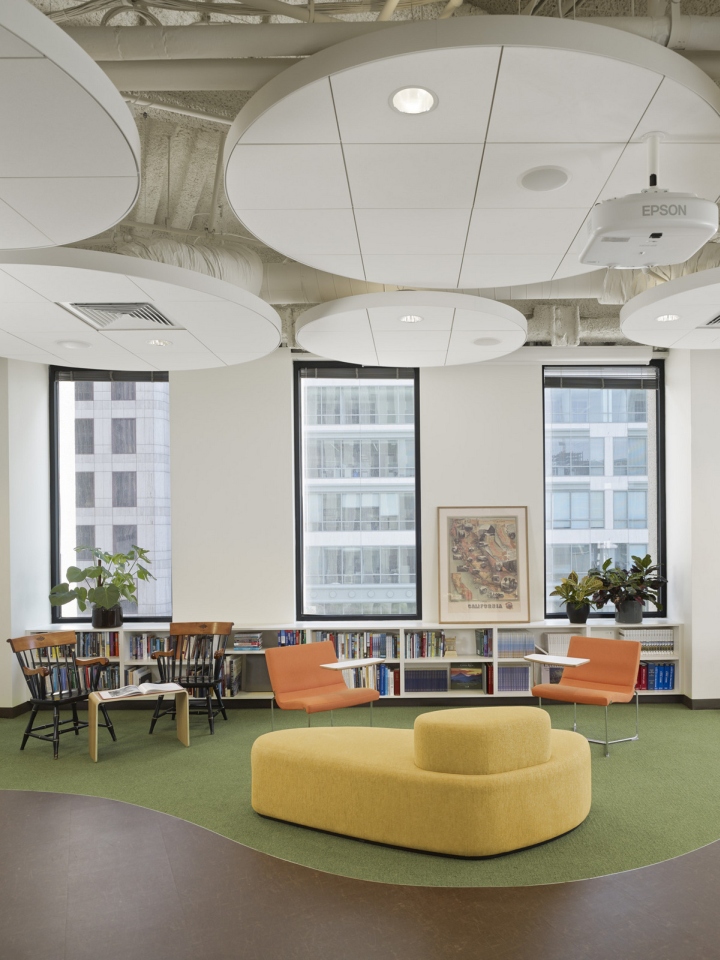
As a result of this quantitative and qualitative analysis, MKThink proposed a radical cultural shift. What if, instead of fixed, assigned office spaces, TNC adopted a ‘hoteling’ protocol by which employees could reserve desk space day-to-day? In flattening the hierarchy of the workstations and eliminating private offices, the space was reorganized to encourage more efficient overall utilization. With enhanced linear circulation, the space was rezoned into five discrete areas based on sound level (from noisy to whisper quiet). To mirror this rezoning, a color palette derived from the very ecosystems and environments that TNC serves was applied throughout to visually differentiate the floor plate’s discrete work environments. Now, employees individually reserve a desk in one of the five zones on a daily or weekly basis. A personal rolling file cabinet to store belongings and paperwork can be easily taken with them to their desk and docked in a central location when not in use.
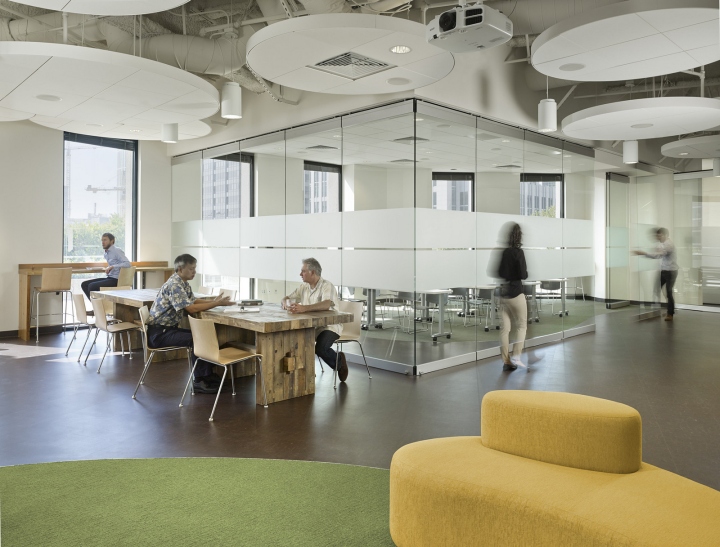
The engagement process also revealed that TNC employees lacked space for private conversation and for collaboration amongst teams; the design team thus outfitted each zone with a series of spaces for collaboration ranging from small workstations for 1-2 employees, to larger, 8 person tiered teleconferencing spaces for collaboration amongst offices across the region/state/country, to more traditional board rooms for groups of 20. A variety of furniture was specified, ranging from standing desks to tiered seating for enhanced teleconferencing sessions. Using local and sustainable materials, including a reclaimed old-growth redwood, were used to create custom features including a full-height planter wall, a topographic ceiling installation, reclaimed wood benches and counters, and a 100% wool reception desk.
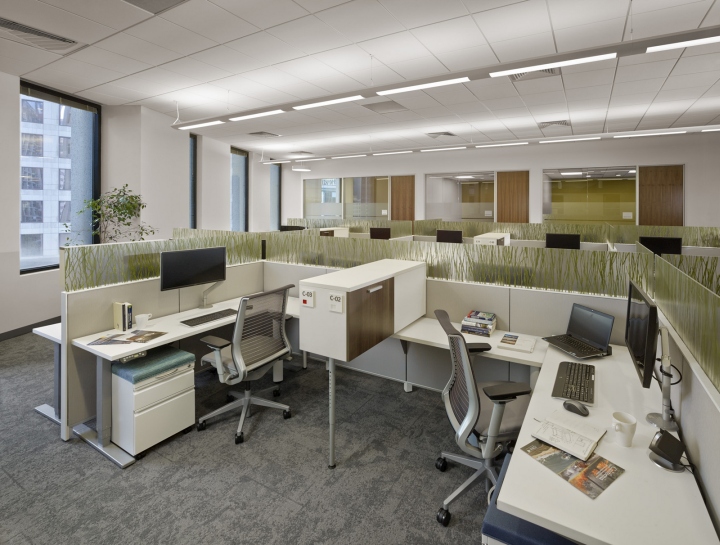
Overall, the cultural evolution has been dramatic. By eliminating unused space and consolidating onto one floor plate, the organization is able to save upwards of $270,000 a year in operational expenditures on the lease alone. Additionally, TNC has reported a rise in daily occupancy; thanks to a carefully considered work environment that embodies the spirit of the organization, the new space allows for seamless interpersonal interaction enabled by the new dedicated collaboration areas.
Photography: Cesar Rubio
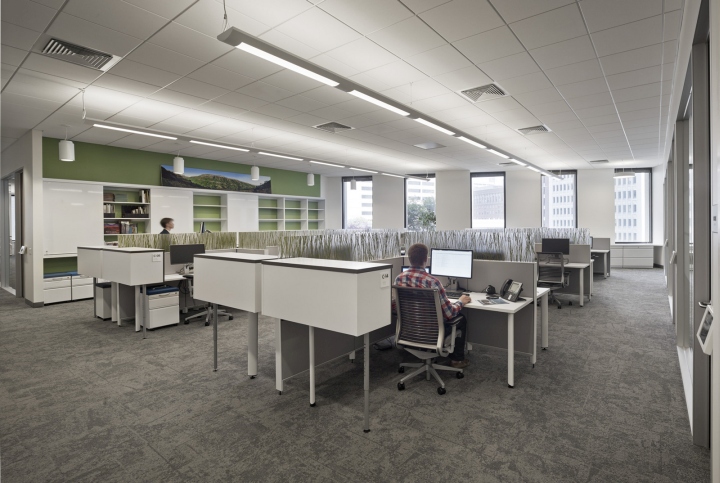
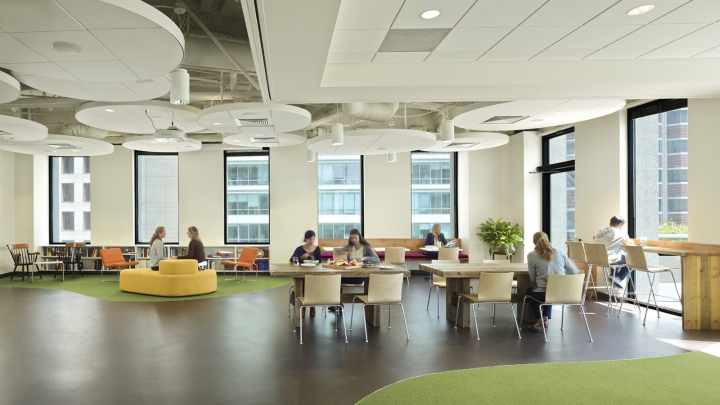
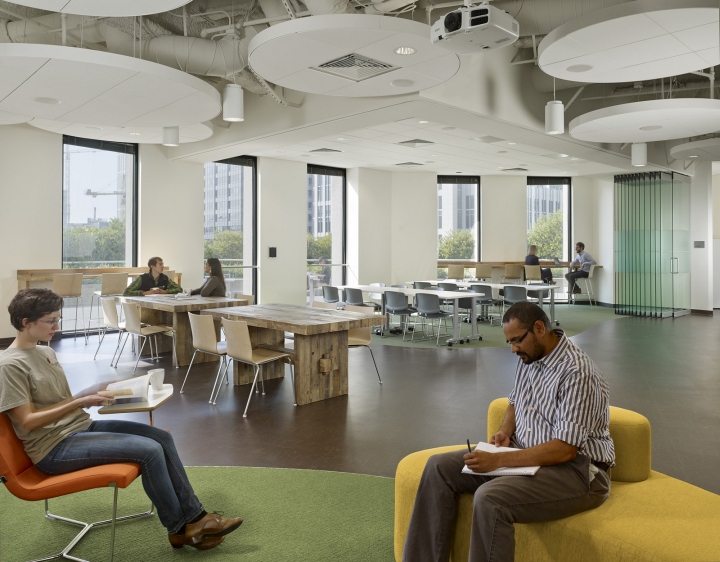
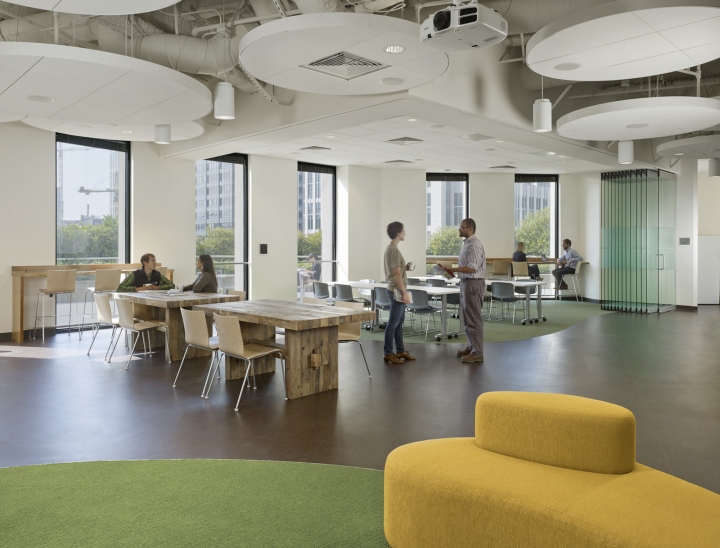
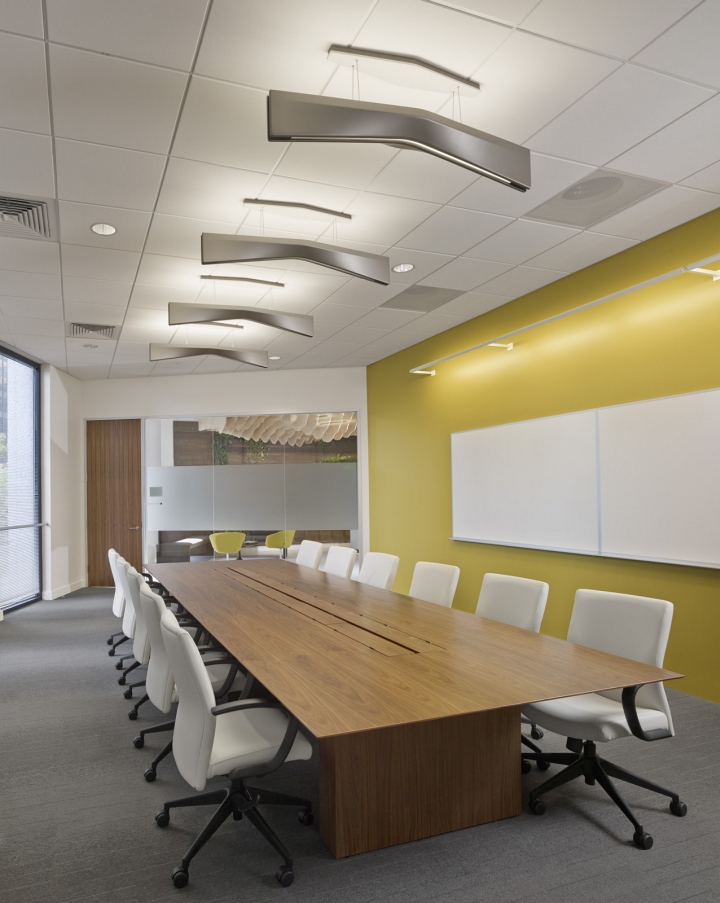
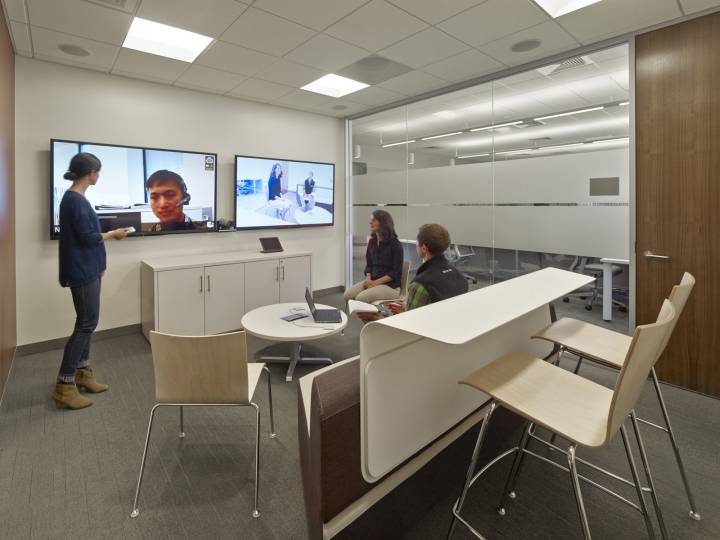
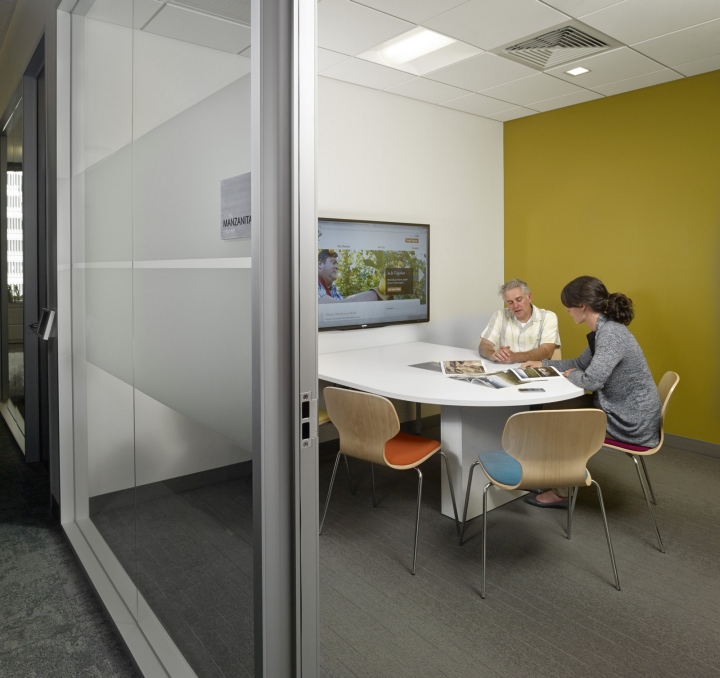
via Office Snapshots











Add to collection


